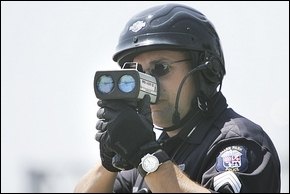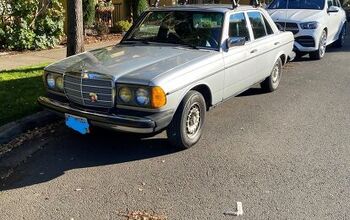Michigan: Police Chiefs Admit Traffic Enforcement is for Revenue
Dwindling property tax revenue has forced local governments in Michigan to look to motorists to refill their municipal budgets, according to a Detroit News analysis. In 2002, the city of Detroit issued a total of 126,007 traffic tickets. Last year, that figure grew to 245,249– a 94 percent jump. The percentage increase was even greater in small towns like Plymouth, which saw the number of tickets skyrocket from 440 to 2,584 — up 487 percent — over the same period. “When I first started in this job thirty years ago, police work was never about revenue enhancement,” Utica Police Chief Michael Reaves told the DetN. “But if you’re a chief now, you have to look at whether your department produces revenues. That’s just the reality nowadays.” Utica issued 3540 tickets in 2003 and 5518 in 2007 — a 56 percent increase. A few communities like Pontiac saw ticket revenue decrease in proportion to the number of police laid off, but eighteen jurisdictions overall reported a ticketing increase of more than fifty percent. The National Motorists Association cited Detroit suburbs as home to the worst speed traps in the country.
“When elected officials say, ‘We need more money,’ they can’t look to the department of public works to raise revenues, so where do they find it? Police departments,” Police Officers Association of Michigan President James Tagnanelli told the News.
Other local police chiefs deny that they use ticket quotas and insist that their sole motivation is to increase public safety through ticketing. Some state officials suggest the obsession with speed is misplaced.
“I’ve spent eight years in traffic services, and I was a crash reconstructionist for five years before that,” Michigan State Police Lieutenant Gary Megge told the News. “So I’ve seen my share of fatal wrecks, and I can tell you: Deaths are not caused by speeding. They’re caused by drinking, drugs and inattentiveness. The old adage that speed kills just isn’t realistic. The safest speed is the speed that is correct for that roadway at a given time. A lot of speed limits are set artificially low.”
The Michigan State Police advocates setting limits according to the 85th percentile rule. This commonly accepted engineering principle is used to determine the legal limit by measuring how fast the vast majority of traffic, 85 percent, travel in safety.
“It just doesn’t seem right to me that we would enforce a law where 90-98 percent of the people are in violation of it,” Lieutenant Megge told the News. “It’s not the way we should do business in this country.”
While Detroit police focused on increasing the number of traffic tickets by 94 percent, every category of serious crime increased significantly. The total number of murders, rapes, robberies, assaults and burglaries increased by 19,370 — a 56 percent jump — between 2002 and 2006.
More by The Newspaper
Latest Car Reviews
Read moreLatest Product Reviews
Read moreRecent Comments
- Bankerdanny I used to love the Chicago show. I went to my first one around 1980 and didn't miss it for another 20 years. After college I would take some vacation time so I could go mid-week when the show was less crowded. But I think I have only gone twice in the past 10 years. There just isn't much that interests me any more and the Detroit 3 started emphasizing the Detroit show over Chicago, so we weren't getting the big debuts like we used to. Ticket prices are ridiculous and food and drink charges are slices of pizza at steak prices.
- FreedMike Mandates are a bad idea. That's all.
- FreedMike Lots of fun, but this one needs a manual.
- Bankerdanny Why send this particular journalist? Her point of view should have been well known, what kind of story did they expect to get from her?
- Slavuta "The NHTSA’s ruling will make AEB the law of the land," -- who elected these dorks to make laws of the land? But then again.. will US be around in 2029?"Braking systems must be able to activate automatically at up to 90 mph when a collision is imminent" -- I already envision highway pileups. So, If I come too close behind to pass a car ahead, the AEB will make life fun. nice.


































Comments
Join the conversation
MMmmmm.....revenue enforcement. In days long past, armed men waiting alongside the roadway to relieve the unwary traveler of "fees" or tariffs were known as highwaymen or bandits. The more things change.... As for posted speed limits, there is a famous amateur film made a few years back by a group of college students called "A Meditation On Speed Limits", showing what happens when drivers on Atlanta's I-285 perimeter loop (8-10 lanes) actually followed the absurd 55mph posted limit. Let's just say that 99.9% of drivers are normally going 75+mph on this major metro highway, and you can figure it out pretty quick. Selective enforcement is both arbitrary and capricious, the very definition of injustice, and the Supreme Court has ruled it unconstitutional. Yet that is exactly what passes for traffic enforcement almost nationwide.
[...] and other countries, police are as disgusted as anyone at this blatant artificial tax. Clicky: Michigan: Police Chiefs Admit Traffic Enforcement is for Revenue | The Truth About Cars There is a whole industry based on lucrative traffic enforcement. And although it's not as if we [...]